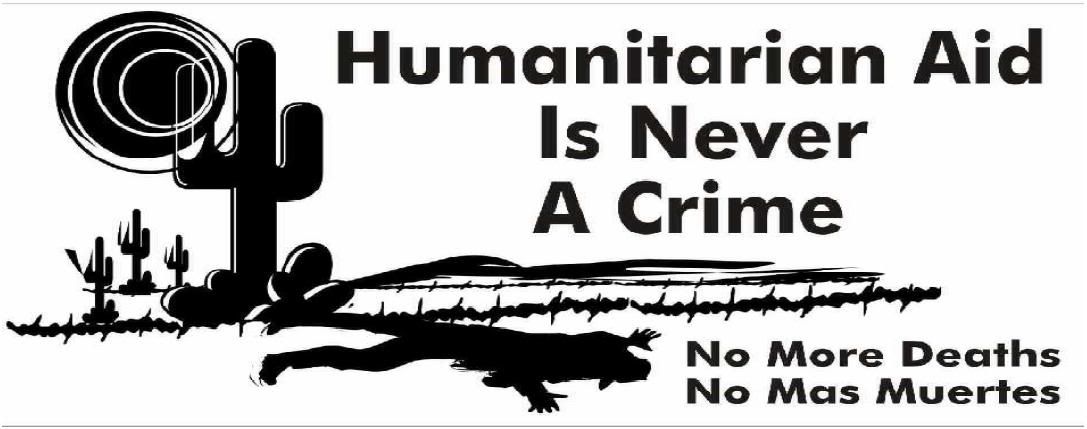I got a couple of emails yesterday from a lurker at my blog (Hi George!) who refuses to understand how the immigration debate in this country is driven by human rights for people like me.
In his last missive, he wrote: “I challenge you to cite any international convention on human rights that gives authority to citizens of one nation the right to violate the sovereignty of another’s.”
I tried explaining to George that he should open up his history books and take a hard look at the hypocrisy of his worldview before continuing to dialogue with me, but he just characterized the mass-migrations of U.S. history as “bygone eras…irrelevant to modern America”. If anything, it gave me some insight into how some of these people think.
sígame…
Rather than take a hard look into the mirror of the past to see that it was due to a lack of will for a group of English citizens to fight the monarchy for religious freedom back home instead of exporting their Manifest Destiny ways to the “New World”, or the scores of Irish settlers escaping mass poverty due to potato famine, or boatloads of Cubans fleeing the hard hand of dictatorship; people like George the lurker fail to see that immigrants coming to the shores of the United States have always arrived in large droves because they were/felt powerless to reform their home countries from within.
Today’s plight by Mexican and Latin American immigrants has an added twist, though; it can be argued quite successfully that the reasons their countries are undergoing severe economic stagnation is directly resulting from United States’ policies. NAFTA has had devastating repercussions north and south of the U.S./Mexico border, and it is now becoming a major issue in the Mexican Presidential Campaign.
Leftist presidential candidate Andres Manuel Lopez Obrador took his hardest line yet against free trade with the United States, saying for the first time that he would not honor Mexico’s commitment under NAFTA to eliminate tariffs on U.S. corn and beans.[snip]
Mexican farmers say hefty agricultural subsidies in the United States give American white corn and beans an unfair advantage over the Mexican market, which depends in large part on small-scale and mostly subsistence farmers. As Mexico’s staple crops, corn and beans carry immense symbolic importance.
Mexicans worry that if the farmers can’t sell the nation’s signature crops at a price that competes with trucked-in produce from the United States, they will go out of business.Farmers say Mexico’s agricultural economy has suffered since the trade deal went into effect in 1994, forcing many to migrate to the United States.
As always, Duke1676 puts all of the the context much more clearly than I could ever muster the energy for, with his latest post at Migra Matters. He examines the ways that we got to this point, as well as a challenge to realize that a major paradigm shift is necessary to move forward in a progressive way that will benefit a majority of folks regardless of which country they reside or what their immigration status is at a given time.
Looking out for the common good: that’s what I call human rights, George. If you refuse to even try to listen to where we’re coming from, you are only going to be guilty of the same echo-chamber phenomenon that you accused me of in your opening email salvo. Perhaps you’re right, blogging is nothing more than preaching to the choir on the best of days, but they can also be a vehicle for activism.
Which reminds me, here’s a notice I got from No More Deaths. They need assistance as the summer heat fires up its intensity.
c/o No More Deaths
3809 E. Third Street
Tucson, AZ 85716-4699
or, if you’re in the area, you can help construct these Life-Saving Packs:
DESERT SURVIVAL PACKS: Into Gallon-Sized Closable Plastic Bag, place 7-10 items, a least 1 from each line below:
- Meat in PLASTIC PACKAGES (tuna, Vienna sausages, chicken, etc.)
- Sports Drink (Capri Sun Sport pouch, Power Gel, Gatorade)
- Nuts, trail mix, dried fruit, chips, fig bars or cookies
- Granola, Power, or snack bars
- Applesauce, pudding, or fruit cups in PLASTIC containers (with spoon)
- Peanut butter or cheese filled crackers
FIRST AID KITS: Use Small Closable Plastic Bag
- 4 to 8 bandages
- Gauze Pads
- Small first aid cream or ointment
- Alcohol Wipes
- Sunscreen, Chapstick, Hand Cream, or Lotion
- Footcare creams, powders, or Moleskin
- Wrapped Candy or throat lozenge
- Aspirin, Tylenol, or Advil packets
PERSONAL HYGIENE KITS: Suggested items in Gallon-Sized Closable Plastic Bags
- Toothbrush (in wrapper)
- Small Toothpaste
- Shampoo
- Soap
- Razor
- Comb
- Washcloth/Hand Towel (does not need to be new, just clean)
OTHER MATERIAL SUPPLIES:
- Rice
- Blankets
- Dry beans
- Dry milk
- Ramen noodles
- Sports drink powder
- Half-liter bottles of water
- Toilet paper
- Shoes (no high-heeled or dress shoes)
- Socks (do not have to be new, just clean)
- Baseball caps and soft hats (no straw hats)
- Bandanas
- Grocery gift cards: (Only stores located in Pima & Cochise counties, please)
- Phone cards
- Gasoline cards
We thank you in advance for your generous contributions that will save lives in the desert.

Crossposted from my humble blog.




